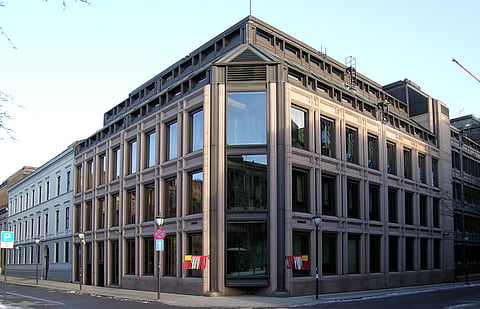

Norway’s sovereign wealth fund, officially known as the Government Pension Fund Global and managed by Norges Bank Investment Management (NBIM), has announced significant divestments from Israeli companies and banks, citing the ongoing humanitarian situation in Gaza. The move marks a substantial scaling back of investments in Israel by the world’s largest sovereign wealth fund, with implications for both regional economics and international corporate involvement.
On Monday, NBIM confirmed it had withdrawn its holdings from five major Israeli banks: Bank Hapoalim, Bank Leumi, Mizrahi Tefahot Bank, First International Bank of Israel, and FIBI Holdings. The fund also divested from U.S.-based Caterpillar Inc., a company long criticized for supplying bulldozers to the Israeli military that are reportedly used in demolitions across Gaza and the West Bank.
The decision was particularly notable given the fund’s sizable exposure: an 11.7 percent stake in Caterpillar valued at $2.1 billion and combined holdings worth $661 million in the five Israeli banks.
This latest action follows a series of divestments over the past two weeks. On August 11, the fund announced its withdrawal from 11 Israeli firms and terminated contracts with external managers overseeing its Israeli portfolio. That move came after scrutiny of its stake in Bet Shemesh Engines Ltd., a company that provides maintenance for Israeli fighter jets. One week later, on August 18, NBIM declared it would pull out of six additional companies tied to operations in Gaza and the West Bank.
As a result, the fund’s total exposure in Israel has dropped sharply, with current investments estimated at under 40 companies—down from 61 in late June. In less than two months, Norway’s sovereign wealth fund has divested from over 20 companies linked to the conflict.
The actions have been hailed by the Boycott, Divestment, and Sanctions (BDS) movement as a major success. Advocates argue the decision mirrors historic economic pressure campaigns, such as those used against apartheid-era South Africa, to push for changes in government policy.
With $2 trillion in assets and stakes in roughly 8,700 companies worldwide, the Norwegian fund’s steps could influence broader divestment trends, potentially pressuring other global investors to reconsider their ties to Israel during a period of prolonged conflict and economic strain.